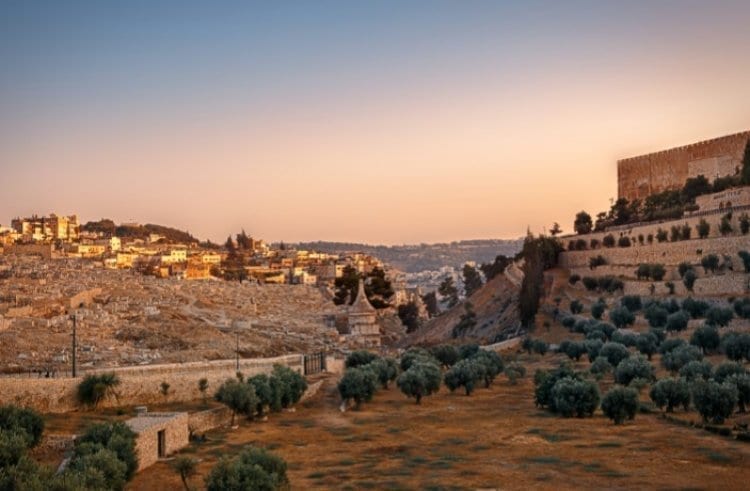Shavuos is a time of appreciation for the Giving of the Torah; where we demonstrate our love for Torah by spending the whole night immersed in the greatest Mitzvo, that of Talmud Torah. As we approach this holy day it is instructive to make sure that we develop an accurate understanding of what the Mitzvo of Talmud Torah entails. A person may believe that by learning Torah in great depth he fulfills the Mitzvo in its entirety, however, on closer analysis it seems that there is another aspect to this Mitzvo that can be overlooked. In Sefer HaMitzvos, the Rambam defines the Mitzvo in the following way: “He commanded us to learn Torah and teach it, this is what is called Talmud Torah, as it says, 'and you shall teach it to your children'; and it is written in the Sifri, 'your children, these are students..” It is evident from the Rambam that a proper kiyum of the Mitzvo of Talmud Torah involves teaching Torah as well as learning it.
There are many sources in Chazal which emphasize the importance of teaching Torah. One of the most striking is the Gemara in Sanhedrin which speaks extremely harshly about one who learns but does not teach. In Parshas Shelach the Torah, in describing one who worships idols, says that “he disgraced the word of Hashem.” The Gemara ascribes this degrading description to a number of hanhagos, including learning and not teaching; “Rebbe Meir says; one who learns Torah and does not teach it is included in the category of, 'for he disgraced the word of Hashem'.” It is very difficult to understand why learning and not teaching can be placed in the same category as truly terrible sins such as denying that the Torah is from Hashem! The Ben Ish Chai zt”l explains that the Torah is eternal and is intended to be passed on through all the generations. However, “one who learns for himself and doesn't strive to give over his learning to his fellow, damages in a mida mesuyemes, the eternal nature of the Torah.” Similarly, the Maharal explains the Gemara that Kavod HaTorah is greatly enhanced when one spreads the word of Hashem to others, One who does not do so prevents Torah from being learnt by others, therefore, he disgraces the word of Hashem because through his inaction he hinders the enhancement of Kavod Hashem.
Other sources in Chazal indicate that teaching Torah is a fundamental part of each person's Avodas Hashem: The Gemara in Rosh Hashana 23b says that one who learns and does not teach is like a myrtle tree in the desert. The Maharal explains that the myrtle is the most pleasant smelling tree and it is in the world for people to benefit from its pleasant smell. A myrtle that is in the desert does not fulfill its purpose because no-one can benefit from it. So too, Torah is there to be taught over to others and one who does not do so cannot fulfill his purpose in life. He writes: “The main aspect of the Torah is wisdom that by its very nature is there to teach others and if it is not taught over then it is a waste, because the essence of wisdom is to be given over to everyone.”
Similarly, the Mishna in Pirkei Avos states: “If you have learnt much Torah, ‘al tachzik tova’ to yourself, because that is why you were created.” The simple understanding of this Mishna is that a person should not be proud of his achievements in Talmud Torah because learning Torah is his purpose in life. However, many commentaries suggest a different explanation. They explain the Mishna to mean that if a person has learnt much Torah he should not keep its goodness for himself, rather he should teach it to others – why? Because his purpose in creation is to learn and teach.”
There are many ways in which a person can share his Torah with others; he (or she) can strive to develop chavrusas (study partners) with people on a lower level of learning. There are numerous outreach organizations, Yeshivas, shuls etc who are in need of people to take out a short time from their schedule in order to teach those less learned than themselves. A mere phone call to one of these organizations may be all the effort necessary to find a suitable chavrusa. Moreover, one need not restrict himself to teaching people face to face; with the added technology available now, one can easily learn with someone in another country on the phone or other mediums. Furthermore, the written medium is another effective way of teaching many people at the same time by writing a short Dvar Torah on the Parsha or some other topic. It is also important to note that teaching Torah need not be limited to formal settings – there are countless opportunities to share Torah wisdom with others in one's daily interactions in life, whether it be with colleagues at work, with the taxi driver, or with friends.
Another aspect of this lesson is the importance of passing on to our children the correct attitude to Torah learning. Rav Wolbe zt”l expressed his views on educating our children in their attitude to learning Torah. “I think that we must teach this to youngsters already from the time that they enter into yeshiva katana. Immediately in the first year, we must say to them that they are intrinsically connected to Klal Yisroel, and that they are obligated to give over to Klal Yisroel all the Torah that they will learn in yeshiva katana and yeshiva gedola. This is their avoda – not just to think about themselves. One must know that he must give over his Torah to Klal Yisroel.’ It is clear that Rav Wolbe believed that approaching our learning with a recognition that we must also teach is not just a maaleh, rather it is a prerequisite to our relationship with Torah.
As we approach Zman Matan Toraseinu, it is worthwhile to remember that Hashem does not simply want us to learn Torah for ourselves, rather He wants Torah to be learned by everyone. May we arrive at the day when every Jew learns and teaches Torah.
From the book “A Light in Time”





